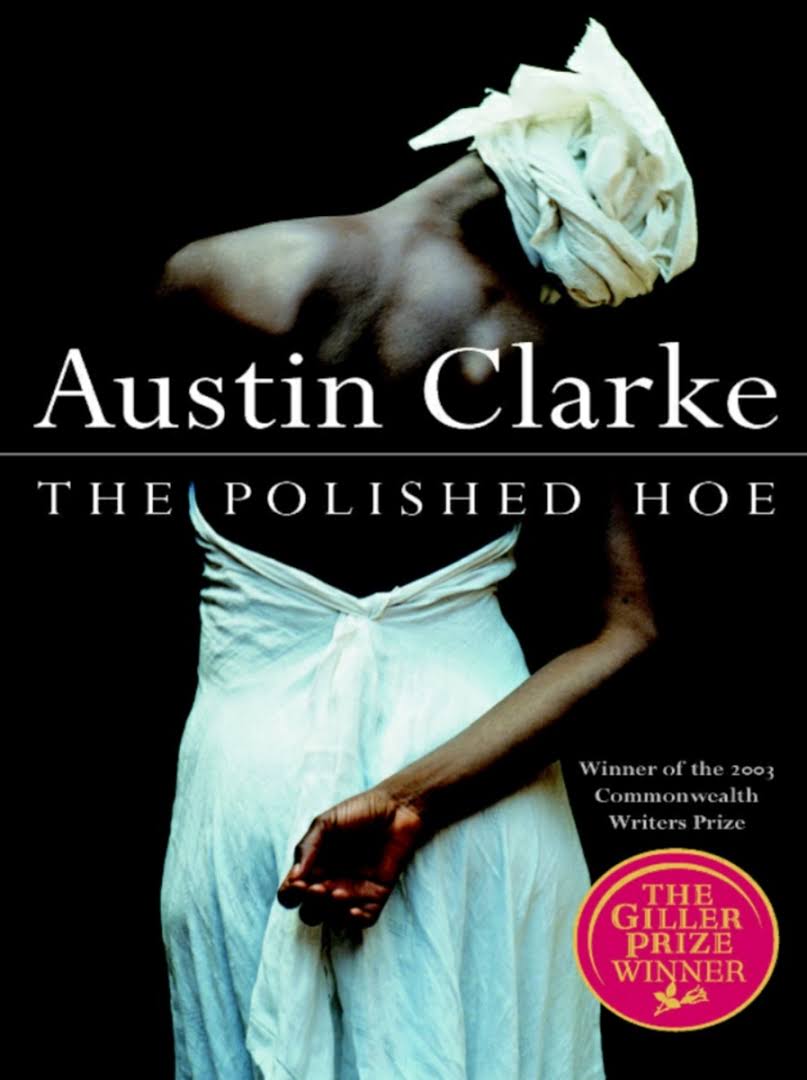The Polished Hoe
by Austin Clarke

Austin Clarke, Toronto resident and Barbados native, maintains that he doesn't write for the limelight, but alas the honours have come in: the Rogers Communications Writers' Trust Fiction Prize for The Origin of Waves , a Governor General's Award nomination for The Question , the W.O. Mitchell Prize for his literary mentorship and his outstanding body of work, and finally Canada's largest and most esteemed annual award for fiction, the Giller Prize, for his novel The Polished Hoe . (Some hushed murmurs have blighted the last of these kudos, calling it a verdict skewed by political correctness rather than literary merit, as if a black man writing about slavery were a recipe for mainstream adulation.)
Clarke's ornately polished Hoe unfolds in less than 24 hours, but it explores the fate of black people, past, present, and future, paced by the Great Time--the place where all those times meet--of African and Caribbean oratory tradition. Clarke plunks his muses down on the isle of Bimshire-- Barbados in cloak--in the "Wessindies." It's an unsettling postcolonial landscape, soiled by the "sickening power of poverty"--among other routine brutalities, woman and mere girls can be and are dragged off and forcibly taken atop heaps of agricultural refuse. As Clarke's story begins, Mr. Bellfeels, the tyrannical "red-nigger" plantation overseer of Flagstaff Village , has been chopped down. After Bellfeels's concubine, the dignified Mary-Mathilda, hails up the law, resident barkeep Manny huffs, "Any one o' we have reason to kill that son-of-a-bitch."
Having pined for Mary-Mathilda for close to 40 years, Percy, a church choir-chanting, lily-livered police sergeant who gets around on a three-speed bike, is called up to the Great House where Bellfeels has installed his mistress (and their Oxbridge-educated son who can pass as white) to take her statement on the crime. But Percy doesn't want to hear it, "the powers-that-be don't. The public don't. And the Village don't." Bloody facts aside, island justice sensibilities have decreed that Bellfeels's slaying was a public service. So while Percy intermittently nods off or quashes the "impetus to rape," Mary-Mathilda--a polished ho in her own right, well aware that the other villagers call her a "brown-skin bitch"--unloads a soliloquy on village history, specifically her existential alienation "ordered through the destinies of paternity" and "paid for by her body." The rest of us are left to measure this epic against other grand island overviews like Patrick Chamoiseau's Texaco . There's no doubt, this Hoe swings sure and true.
-- sigcino moyo
original publication: Amazon.ca

